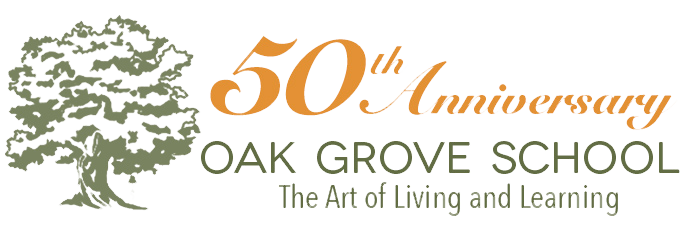Living Education: Self-Discovery
March 31, 2019
Self-Discovery: Making Space for What Really Counts
The recent college admissions scandal, dubbed Varsity Blues, hit the news just a few days before the release of Turning the Tide II, the second installment of a report on the college admissions process from the Harvard Graduate School of Education’s Making Caring Common Project. As if part of a well-choreographed but tragic dance, a large portion of the report, entitled Ethical Parenting in the College Admissions Process, unabashedly calls out parents for “failing to prepare young people to be caring, ethical community members and citizens.” According to students surveyed for the report, most parents place far more emphasis on their children getting into good colleges than on them being good people. “In an effort to give their kids everything, these parents often end up robbing them of what counts.”
The report goes on to provide recommendations for parents guiding their teens through the college admissions process. Their first recommendation, ‘Keep the focus on your teen,’ centers around supporting the teen’s authenticity. In order to be authentic, teens first need to know themselves. In fact, identity formation is a primary facet of adolescence. But when in the frantic years of clamoring to accumulate outstanding grades, AP credits, athletic awards, participation in clubs and leadership credentials, do these teens have time to get to know themselves?
Parents are not the only culprits here. At risk of stating the obvious, Harvard itself is a major culprit. In fact, Harvard is ironically leading the pack on both sides of this dilemma: as arguably the most elite university of them all (with a record low 4.5% acceptance rate this year) and also as head of a movement to re-write college admissions criteria. Kudos to them for at least trying to be part of the solution.
All of the adults stewarding children through childhood play a role in this crisis and have the opportunity to be part of “turning the tide.” In my mind, the best way for both parents and educators to support young people in the essential process of self-discovery and increasing independence is to get out of the way, to back-off, humbly taking our well-thought out agendas and our best intentions with us. Schools can build in time in the regular schedule for pursuit of personal interests, for social interaction, and for quiet reflection. Parents can seek out and support these schools, eschewing questions about test scores, rankings, and college acceptances in favor of deep consideration of the culture of the school, the quality of the relationships, and the opportunities for self-discovery. Together parents and teachers can build supportive communities committed to creating the space teens need to come to know themselves.
There are many elementary and high schools that intentionally provide opportunities for self-discovery. Here are just a few inspiring examples from my own personal research this past year.
Oak Grove School in Ojai, California incorporates both time and space for a variety of contemplative practices into the regular weekly schedule and into the campus. These include meditation, council circles, quiet time communing with nature, and the 7th grade rocking chair circle pictured above.
www.oakgroveschool.org
Skorpeskolen Private School in Helsingor, Denmark offers Personal Time to students in the early grades and Talent Time to students in the upper grades. These weekly periods provide opportunities to follow a curiosity, to pursue a personal passion, and to develop the capacity for sustained, deep focus on a self-directed project for an extended amount of time. Open in Google Chrome for a translation of the website.
www.skorpeskolen.dk
The Green School in Bali, Indonesia identifies sustainability as one its primary values. They believe that the practice of sustainability starts at the individual level. For that reason, teachers are free to set aside all academic demands whenever an individual child needs extra social-emotional support.
www.greenschool.org/about/
You can access the full report from Harvard here.
Harvard’s class of 2023 acceptance rate reported in The Crimson.
You can view Christina Sbarra’s original post here.









